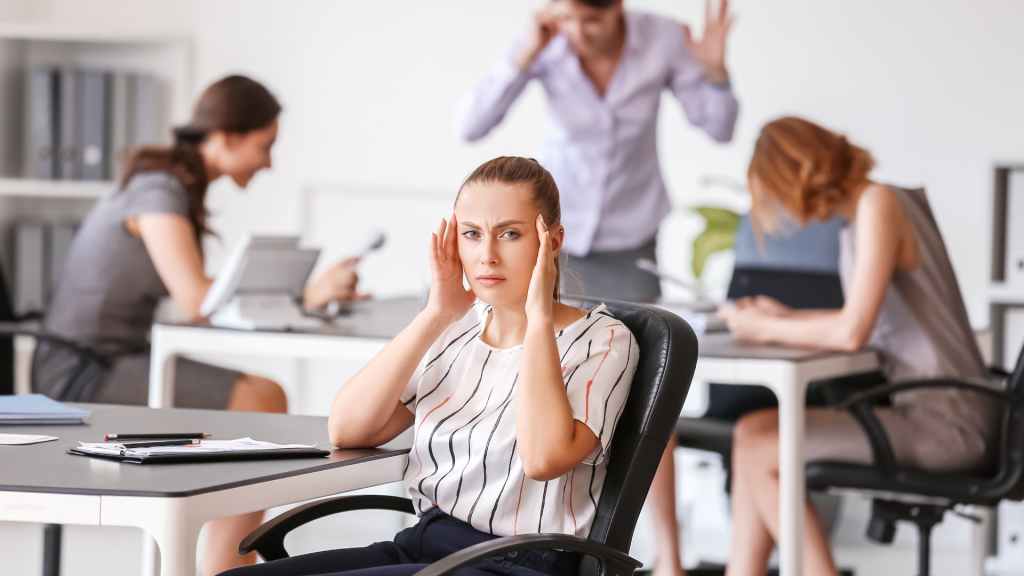You’re not alone if you find yourself avoiding loud parties, chaotic cafes, or bustling crowds. While others may thrive in energetic environments, for some of us, noisy places can feel like emotional landmines. Whether it’s the clatter of dishes, overlapping conversations, or thumping music, the chaos can leave you feeling overwhelmed, exhausted, or even anxious.
But here’s the kicker: avoiding noisy places isn’t just a “quirk” or a sign of being antisocial. It’s often a reflection of how your mind and body process stimulation—and that’s completely valid. Still, explaining this to friends who don’t share your sensitivity can be tricky. You might fear being misunderstood, judged, or even left out.
This article unpacks why you avoid noisy places, the toll they can take on your mental and emotional health, and—most importantly—how to confidently and kindly talk to friends about your boundaries. Let’s reclaim your peace without sacrificing your relationships.
Understanding Why You Avoid Noisy Places
It’s not just about being “too sensitive” or “boring”—there’s real science and psychology behind why certain people find noisy places overwhelming. If you’ve ever felt the urge to escape a loud setting or needed hours to recover from a loud event, this section will help you understand the why behind your instincts.
The Science of Sound Sensitivity
Sound sensitivity, often referred to as sensory processing sensitivity or even misophonia in extreme cases, is a trait shared by many who are neurologically wired to react more strongly to stimuli. In simple terms, your brain absorbs more detail from your environment, and that includes noise.
Studies show that people with heightened sound sensitivity have more active auditory cortices, meaning their brains literally process more sound than others. When this happens in crowded or noisy places, the sensory input can flood your system, triggering symptoms like:
- Irritability or agitation
- Racing thoughts
- Headaches or tension
- Trouble concentrating
- A strong need to leave or retreat
For introverts and highly sensitive individuals, the volume and unpredictability of loud environments can become mentally draining in minutes. It’s not about disliking people—it’s about the brain working overtime to manage too much input at once.
Introversion vs. Environmental Triggers
People often confuse introversion with noise sensitivity, but the two are different—though they often overlap. Introverts gain energy from solitude and may find social events tiring, while environmental sensitivity is about how external factors like light, sound, and smell affect your nervous system.
That said, noisy places can be a double whammy for introverts who are already running on low social fuel. Add in harsh lighting, loud music, and unpredictable chatter, and suddenly a night out becomes a survival mission rather than a social outing.
Understanding this distinction can empower you to better explain your preferences. It’s not about disliking people or being a buzzkill—it’s about managing your energy and protecting your mental well-being.
Whether it’s backed by neurology, personality traits, or emotional needs, your avoidance of noisy places is not just valid—it’s smart. It’s about self-awareness and choosing comfort over conformity.
The Emotional and Mental Toll of Loud Environments
Avoiding noisy places isn’t just about personal preference—it’s often a mental and emotional survival mechanism. The effects of loud, chaotic spaces can be far-reaching, especially for those who are more sensitive to sensory input. Here, we’ll unpack how these environments can affect your mental health, emotional well-being, and energy levels.
Anxiety, Overstimulation, and Mental Fatigue
When you walk into a space filled with overlapping conversations, pounding basslines, and flashing lights, your brain has to process an overload of information—fast. This sensory bombardment can trigger overstimulation, a state where your nervous system struggles to cope with input from all directions.
This can lead to:
- Heightened anxiety or even panic attacks
- Increased heart rate and shallow breathing
- Trouble focusing or making decisions
- Feeling irritable or short-tempered
- Needing to “shut down” or retreat quickly
This isn’t about being antisocial—it’s your brain throwing up a red flag saying, “This is too much.”
For those dealing with social anxiety or trauma-related sensitivities, the impact can be even more intense. Loud environments often remove the sense of control or safety we need to feel emotionally secure. It becomes hard to track conversations or read social cues, which can lead to miscommunication, discomfort, or a total emotional crash afterward.
Impact on Focus, Mood, and Social Battery
Ever walked away from a loud dinner or event feeling like you just ran a marathon? That’s your social battery being drained. In high-noise settings, it’s harder to concentrate, hold meaningful conversations, or even think clearly. You’re working overtime just to exist in the space.
The result?
- Brain fog and tiredness the next day
- Low mood or emotional numbness
- Feeling disconnected from yourself or others
- Avoidance of future plans that might be similar
This is why many people who avoid noisy places also prefer quality over quantity in social interactions. Deep, calm conversations and slow-paced environments allow for presence and genuine connection—without the static of background chaos.
The next time someone questions your choice to skip a crowded concert or busy club, remember: your decision isn’t about avoidance—it’s about preservation.
Cultural and Social Misunderstandings Around Noise Avoidance
Despite how common noise sensitivity is, society often doesn’t make much space for it—literally or figuratively. Choosing to avoid loud settings can be met with confusion, judgment, or even ridicule, especially in cultures where socializing is equated with noise, energy, and constant connection.
Understanding these misconceptions is key not only for self-compassion but also for bridging gaps in how others perceive your choices.
Mislabeling Sensitivity as Rudeness
One of the most frustrating parts of noise avoidance is that it’s often misinterpreted. When you say no to a loud party, leave early from a crowded bar, or prefer quiet dinners over nightclubs, people might assume you’re:
- Being standoffish
- Judging their lifestyle
- “Too sensitive” or dramatic
- Killing the vibe
But what they don’t see is the mental math happening in your head: “How long can I stay before I feel drained?” or “Do I have enough energy left to cope with that volume?”
Unfortunately, we live in a world that often praises extroverted traits—loud laughter, high-energy socializing, constant stimulation—while overlooking the beauty of quiet presence, attentiveness, and calm connection. This cultural bias can make you feel like the odd one out, even when you’re simply protecting your peace.
The Stigma of Saying “No” to Loud Gatherings
Another reason it’s hard to explain your avoidance is because saying “no” often feels like letting people down. There’s a social pressure to show up, to be fun, to “not miss out.” When you choose to skip a noisy event, some friends might:
- Take it personally
- Think you’re pulling away from the friendship
- Assume you’re being boring or difficult
But the truth is, your boundaries aren’t a rejection of people—they’re a reflection of your needs. You’re not saying, “I don’t care about you.” You’re saying, “I care about me, too.”
Part of healing this stigma lies in how we talk about it—clearly, honestly, and compassionately. The next section will cover just that: How to explain to your friends why you avoid noisy places—without guilt or awkwardness.
How to Explain to Friends Why You Avoid Noisy Places
It can feel intimidating or awkward to open up about why noisy places drain you. You might worry about sounding too sensitive, offending someone, or being misunderstood. But with the right words and tone, you can express your needs clearly—and keep your relationships strong.
This section is all about helping you speak your truth in a kind, confident, and guilt-free way.
Honest Yet Kind Communication Strategies
The goal here isn’t to defend yourself—it’s to be understood. Start with honesty, wrap it in warmth, and anchor it in your genuine care for the friendship. Here are some go-to phrases and strategies:
- Use “I” Statements: “I tend to get overwhelmed in really loud places, and I’ve learned I enjoy myself more in quieter settings.”
- Validate Their Intentions: “I love that you want to include me—it means a lot.”
- Offer Insight, Not Excuses: “It’s not that I don’t want to hang out—I just know I won’t be at my best in a super loud environment.”
- Set Expectations Early: If you know a party or event is coming up, speak up beforehand. “I might pop in for a bit, but I’ll probably keep it short so I don’t burn out.”
You’re not being “extra”—you’re being real. And real friendships thrive on honesty, not people-pleasing.
What to Say Without Feeling Guilty
Guilt is one of the biggest blockers to setting boundaries. But it helps to reframe your mindset: you’re not rejecting people—you’re protecting your energy. Here’s how to soften the message without downplaying your truth:
- “Thanks for the invite—I’ll have to pass this time, but let’s plan something quieter soon.”
- “I know I’ve skipped a few gatherings. I’ve realized I really value lower-key hangouts where I can actually connect.”
- “Loud places tend to overwhelm me, and I’ve learned to respect that part of myself. I hope you get it.”
When you speak from a place of self-awareness and kindness, you give your friends a chance to meet you where you are. The right ones will make space for your needs—and some might even thank you for putting words to what they feel, too.
We’ve now covered the what and how of explaining your boundary. Next up, let’s explore positive alternatives that allow you to stay social—without the noise.
Let’s move into a more hopeful, action-oriented space—because avoiding noise doesn’t mean avoiding people. In fact, it often opens the door to more meaningful connections.
Healthy Alternatives to Stay Connected Without Noise
If loud parties, concerts, and buzzing bars aren’t your thing, that doesn’t mean you have to become a recluse. There are countless ways to build and nurture social bonds without the sensory overload. When you suggest alternatives that suit both your energy and your friendships, you don’t just avoid burnout—you create space for deeper connection.
Suggesting Quiet Activities with Friends
Many people default to loud environments simply because it’s what’s common—not necessarily what’s best. That’s your opening to suggest new, more low-key ways to hang out:
- Coffee shop chats (choose quieter, cozier spots)
- Nature walks or park meetups
- Board game or movie nights at home
- Picnic brunches instead of loud dinners
- Art galleries, museums, or bookstores
Frame it as an opportunity to really talk and be present. Most friends are happy to swap the noise for something more personal, especially when it feels intentional and relaxed.
You could say:
“Hey, I’d love to catch up, but those packed restaurants get a bit much for me. Want to try that new tea lounge or go for a walk instead?”
Chances are, they’ll appreciate the effort—and even start looking forward to your quieter plans.
Building Deeper Bonds in Low-Stimulation Settings
When you remove the distractions of noise and chaos, you create space for real connection. Eye contact. Deep conversations. Shared laughter that doesn’t get drowned out by music. In quiet settings:
- You’re more emotionally available.
- You listen better—and feel heard in return.
- You make memories that actually stick, not blur into background noise.
Low-stimulation doesn’t mean low-impact. In fact, many of the most meaningful moments in friendships happen when we’re simply sitting, talking, or experiencing something together without pressure.
Choosing peace over pressure doesn’t push people away—it invites them closer, with intention.
Conclusion: Choosing Peace Over Pressure Is a Strength, Not a Flaw
In a world that often equates noise with celebration and chaos with connection, choosing quiet can feel like swimming against the current. But here’s the truth: avoiding noisy places isn’t something to apologize for—it’s something to honor.
You’ve learned that sound sensitivity is more than a personal preference; it’s often rooted in your nervous system, your emotional needs, and your energetic boundaries. You’ve seen how loud environments can drain your focus, elevate your anxiety, and mute your true self.
You’ve also discovered that connection doesn’t have to be loud to be real. Whether it’s a calm coffee date, a thoughtful walk, or a cozy night in, there are countless ways to stay close to the people you care about—without abandoning your own comfort.
Most importantly, you’ve explored how to talk to your friends about your boundaries in a way that’s open, kind, and honest. Real friends won’t just understand—they’ll respect you for it.
So, the next time someone asks why you avoid noisy places, you can answer with confidence and compassion. You’re not being difficult. You’re being authentic. And in doing so, you’re making room for a life that’s not only quieter—but richer, deeper, and far more aligned with who you really are.
Why do noisy places make me feel anxious or overwhelmed?
Noisy environments can overstimulate your senses and trigger your nervous system into a state of stress. For some people, especially those who are introverted, highly sensitive, or neurodivergent, loud settings can create mental and emotional overload, leading to anxiety, irritability, or exhaustion.
Is it rude to leave a loud event early or decline an invite altogether?
Not at all. It’s respectful to honor your personal limits. You can communicate with kindness and gratitude while still setting boundaries. The people who value you will appreciate your honesty—and may even be relieved to know they’re not alone in feeling that way.
How can I tell my friends that loud environments aren’t for me?
Use “I” statements to explain how noise affects you. Focus on how you feel rather than blaming the environment or others. Be kind, direct, and reassure them that it’s about your comfort, not their company. For example, “I really want to hang out, but I get overwhelmed in loud places. Can we do something more low-key?”
Can I still be social and avoid noisy places?
Absolutely. Connection doesn’t require chaos. Suggest quieter alternatives like walks, brunches, one-on-one meetups, or creative activities. These settings often lead to deeper conversations and more meaningful bonding.
Is it normal to feel guilty about not going to loud events?
Yes, especially if you fear missing out or disappointing others. But that guilt often comes from societal pressure, not your own truth. Reframe your mindset—by saying no to noise, you’re saying yes to peace, authenticity, and quality time on your terms.
What if my friends don’t understand or stop inviting me?
It can be painful, but it’s also revealing. Real friendships are built on mutual respect. If someone consistently disregards your boundaries, it may be time to reevaluate the dynamic. Many people will appreciate your honesty—and some may even follow your lead.






